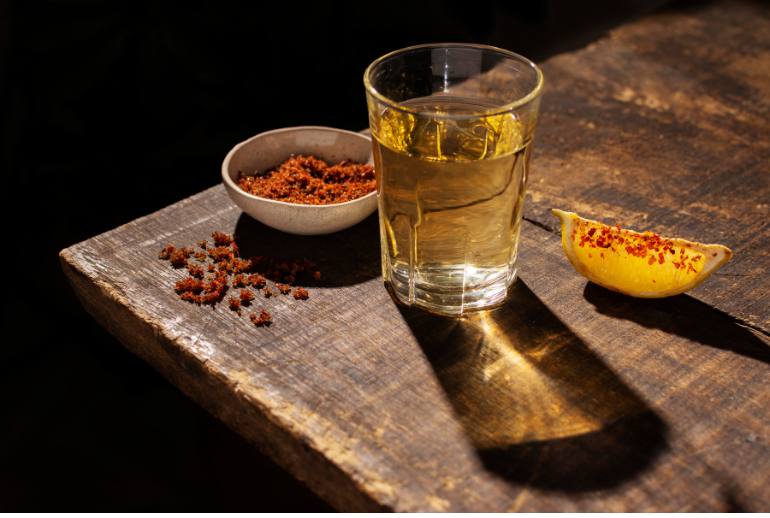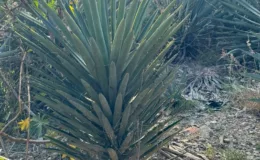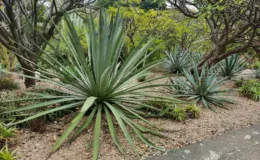If you’re not familiar with mezcal – first of all: are you living under a rock?! – secondly: it’s a Mexican spirit made from the heart of the agave plant. While often compared to tequila, mezcal is very unique in its own right, with distinct flavor profiles based on the types of agave plants used, production processes, and barrel aging. So, let’s dive in and explore the world of mezcal taste!
Types of Agave Plants (“Magueys”)
First things first, let’s talk about the agave plants, they maguey types. There are over 200 different types of agave plants used to make mezcal, each with its own unique flavor profile. Some of the most common agave plants used for mezcal include espadín, tobalá, madrecuishe, tepeztate or arroqueño.
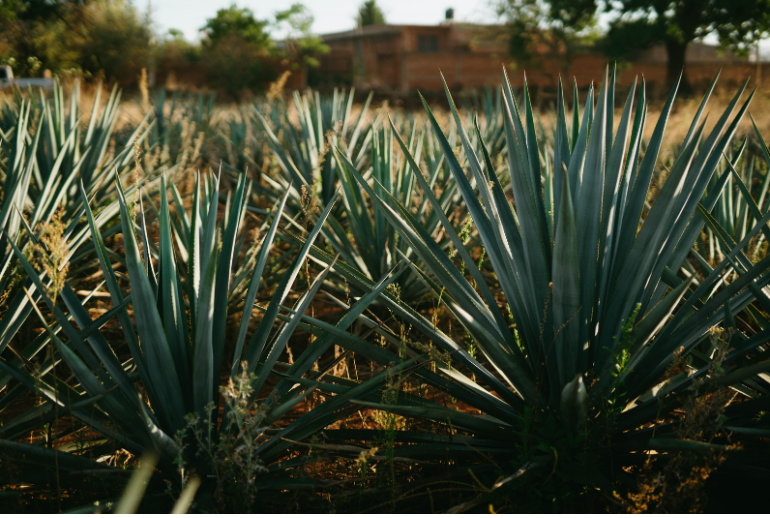
Espadín is the most commonly used agave plant for mezcal production – because it is the only one that can be cultivated – and it has a relatively mild and sweet flavor profile. It’s often described as having notes of smoke, fruit, and spice. Tobalá, on the other hand, has a more complex flavor profile with notes of citrus, pepper, and earthy undertones. Madrecuishe is known for its vegetal and herbal flavors, while tepeztate has a more mineral and earthy taste. Arroqueño is often described as having a nutty and smoky flavor, with a hint of sweetness.
Tasting Notes to Look Out For
Now that we’ve covered the types of agave plants, let’s talk about the specific tasting notes to look out for when sipping on some delicious mezcal.
While it might not be an actual flavor note, one of the most prominent elements in mezcal is smoke, which is a result of the agave plants being roasted in underground pits before being distilled. This smoky flavor can range from subtle to bold, depending on the production process and the type of agave plant used.
Beyond the smoky flavor, you might also detect notes of fruit, such as pineapple or mango, or spices like cinnamon or black pepper. Some mezcals have a subtle sweetness, while others are more herbaceous or floral. And don’t forget about the minerality! Some mezcals have a distinct mineral taste, which is often described as earthy or salty.
These are just some base flavor notes. Just like with whiskey or wine, real mezcal lovers can taste a whole world of flavor profiles. Notes being mentioned a lot include:
- All kinds of different fruits like citrus, apple, even banana
- Herbs and plants
- Cinnamon
- Leather
- Brow sugar
… and many more.
Difference in Flavor Compared to Tequila
Now, let’s talk about the difference in flavor between mezcal and tequila. While both are made from the agave plant, they have very distinct differences in their production processes and flavor profiles. Tequila is made from the blue agave plant and is only produced in certain regions of Mexico (mainl Jalisco), while mezcal can be made from any type of agave plant and can be produced in different regions of Mexico (mainly Oaxaca).
In terms of flavor, tequila tends to have a more straightforward taste with notes of citrus and pepper, while mezcal has a wider range of flavors and a distinct smokiness. Mezcal is often described as having a more complex flavor profile, with layers of fruit, spice, and earthy undertones. It also offers a wider variety due to all the different agave plants and varieties in production processes.
If you didn’t know they were “cousins” and both made from agave, most mezcals would not remind you of tequila when you tried them.
Specific Brands of Mezcal and What They Taste Like
There are countless brands of mezcal out there, each with their own unique flavor profile. Here are a few to try and what you can expect from their taste:
Del Maguey Chichicapa: Made from 100% organic espadín agave, this mezcal has a smoky, herbaceous flavor with notes of citrus and a hint of sweetness. It’s perfect for sipping on its own or using in cocktails.
Ilegal Joven: This mezcal is also made of espadín. It has notes of smoke, citrus, and a hint of sweetness, with a smooth and velvety finish. It’s great for sipping or using in cocktails.
Los Nahuales Reposado: This mezcal is aged in oak barrels for up to 11 months, giving it a rich and smooth flavor profile. It has notes of vanilla, caramel, and spice, with a subtle smokiness in the background. It’s a great option for those who prefer a more mellow and rounded taste.
Production Process and Barrel Aging
The production process of mezcal can also impact the flavor profile. As mentioned earlier, the agave plants are roasted in underground pits before being distilled, which gives mezcal its signature smokiness. However, the amount of time the agave is roasted can also impact the flavor. A longer roasting time will result in a smokier flavor, while a shorter roasting time will produce a more subtle smokiness.
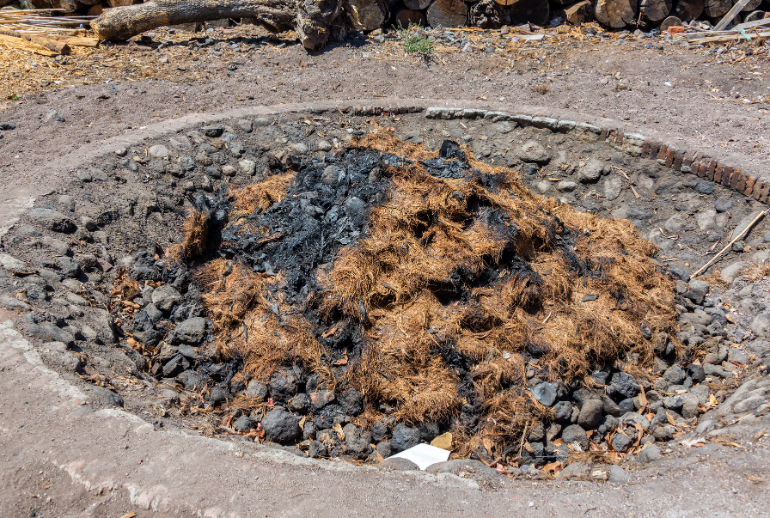
In addition to the roasting process, the type of still used for distillation can also impact the flavor. Mezcal is traditionally distilled in clay or copper stills, and each material can impart different flavors to the final product. Clay stills are known for producing mezcals with a more earthy and mineral taste, while copper stills can result in a more floral and fruity flavor.
Barrel aging can also impact the flavor of mezcal. While not all mezcals are aged in barrels, those that are can take on the characteristics of the wood. For example, mezcal aged in oak barrels can have notes of vanilla, caramel, and spice, while mezcal aged in sherry barrels can have a nutty and sweet flavor.
You see, the mezcal production process consists of many different elements, which all have an impact on the overall flavor of the end product. Some more examples:
- Most importantly: Who was the maestro mezcalero? Maestro mezcaleros are responsible for the whole production process. They are seen as the master minds, artists and craftsmen behind every mezcal badge. All decisions they make influence the quality and taste of the mezcal they create. In the mezcal world, some of them are very renowned and connoisseur make their buying decision based on their favorite mezcalero.
- Is the badge produced traditional, ancestral or industrial with modern methods? There are very specific criteria for a mezcal production in order to label them traditional and ancestral.
- In what area, climate and altitude is the mezcal produced?
- Are the piñas ground by hand, a shredder or the traditional tahona mill?
- What container are the piñas distilled in? Traditional clay pots, copper, steel?
These and many more factors make every mezcal unique – and that is part of the fun of getting into mezcal, especially when they are not industrially produced, but small batch and with traditional methods. Every single one of them tells a story
The Degree of The Smoky Taste
We’ve mentioned it before, but the smokiness is a key characteristic of mezcal taste. It’s what sets it apart from tequila and gives it a unique flavor profile. The smokiness comes from the agave plants being roasted in underground pits, usually with wood or charcoal. This process can result in a range of smokiness, from subtle to intense.
The smoky taste can be off-putting for some people, but it’s also what draws many mezcal lovers to the spirit. If you’re not sure if you like smoky flavors, start with a mezcal that has a more subtle smokiness and work your way up from there.
Mezcal’s Impact on Cocktail Flavors
Mezcal’s unique flavor profile makes it a versatile spirit for cocktails. The smokiness can add depth and complexity to a drink, while the other flavors can complement or contrast with other ingredients.
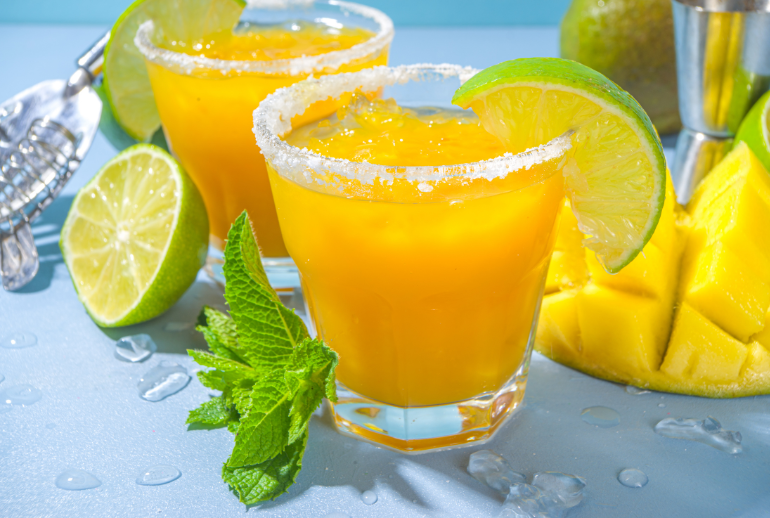
Some popular mezcal cocktails include the Mezcal Margarita, which substitutes mezcal for tequila in the classic margarita recipe, and the Oaxaca Old Fashioned, which combines mezcal with agave nectar and bitters for a smoky twist on the classic cocktail.
Final Thoughts
In conclusion, mezcal is a complex and diverse spirit with a wide range of flavor profiles. From the types of agave plants used to the production process and barrel aging, there are many factors that can impact the taste of mezcal. While it’s often compared to tequila, mezcal is truly in a league of its own when it comes to taste.
Whether you’re a seasoned mezcal lover or trying it for the first time, there’s always something new to discover in the world of mezcal taste. So, grab a glass, take a sip, and explore the smoky and delicious world of mezcal!

